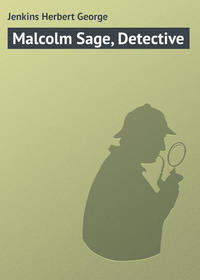
John Dene of Toronto: A Comedy of Whitehall
Silently "Spotty" took the cigar, bit off the end and spat it together with his thanks into the hold of the Toronto. He then proceeded to light the cigar. The two men turned and made their way to the cabin allotted to them as a sort of office of works. Both were thinking of the morrow when the Destroyer would be floated out from the parent ship ready for her first voyage. In addition to John Dene and his second-in-command, she would carry Commander Ryles, who had a distinguished record in submarine warfare. He would represent the Admiralty. John Dene had experienced some difficulty at the Admiralty over the personnel of the Destroyer's crew; but he had stood resolutely to his guns, and the Authorities had capitulated. This was largely due to Sir Bridgman North's wise counsels.
"When," he remarked, "I have to choose between giving John Dene his head and being gingered-up, I prefer the first. It's infinitely less painful."
Sir Lyster had been inclined to expostulate with his colleague upon the manner in which he gave way to John Dene's demands. Sir Lyster felt that the dignity of his office was being undermined by the blunt-spoken Canadian.
"Do you not think," he had remarked in the early days of the descent of John Dene upon the Admiralty, "that it would be better for us to stand up to Mr. Dene? I think the effect would be salutary."
"For us, undoubtedly," Sir Bridgman had said drily. "Personally I object to being gingered-up. Look at poor Blair. There you see the results of the process. He ceased to be an Imperialist within twenty-four hours of John Dene's coming upon the scene. Now he goes about with a hunted look in his eyes, and a prayer in his heart that he may get through the day without being gingered-up by the unspeakable John Dene."
"I really think I shall have to speak to Mr. Dene about – " Sir Lyster had begun.
"Take my advice and don't," was the retort. "Blair and John Dene represent two epochs: Blair is the British Empire that was, John Dene is the British Empire that is to be. It's like one of Nelson's old three-deckers against a super-dreadnought, and Blair ain't the dreadnought."
"He is certainly a remarkable man," Sir Lyster had admitted conventionally, referring to John Dene.
"He's more than that, Grayne," said Sir Bridgman, "he's the first genus-patriot produced by the British Empire, possibly by the world," he added drily, proceeding to light a cigarette. "Think of it," he added half to himself, "he could have got literally millions for his invention from any of the big naval powers; yet he chooses to give it to us for nothing, and what's more he's not out for honours. Ginger or no ginger, John Dene's a man worth meeting, Grayne, on my soul he is."
Blake and Quinton seated themselves one on either side of the little wooden table in the cabin of the Toronto that answered as an office of works, Blake looking straight in front of him, Quinton absorbed in smoking and expectoration. Presently Blake took from his pocket a large silver watch, gazed at it with deliberation, then raising his eyes nodded to his companion. With a final expectoration, "Spotty" rose and left the cabin, walked over to the starboard side and climbed down into the motor-boat that lay there manned by her crew of three men.
Without a word the man with the boat-hook pushed off, the motor was started and the boat throbbed her way to the entrance to the little harbour. The crew of the Destroyer had learned from Blake the virtue of silence. For half an hour the motor-boat tore her way over the waters, heading due south. From time to time Quinton gazed ahead through a pair of binoculars.
"Starb'd," he called to the helmsman as he lowered the glass from his eyes for the twentieth time, then by way of explanation added, "The ruddy chaser." "Steady," he added a moment later.
A few minutes later a cloud of white spray indicated the approach of a small craft travelling at a high rate of speed. Quinton continued to watch the approaching boat until the humped shoulders of a submarine-chaser were distinguishable through the spume. As the boats neared each other he gave a quick command to the engineer, and the speed of the motor-boat decreased. At the same moment the curtain of spray that screened the on-coming chaser died down, her fine and sinister lines becoming discernible.
Dexterously the helmsman brought the motor-boat alongside the larger vessel and, without a word there stepped on board a little man wearing motor-goggles and a red beard of rather truculent shape, and a naval commander whom the stranger introduced to Quinton as Commander Ryles. With a nod to the man with the boathook, and a wave of his arm to those aboard the chaser, James Grant took his seat together with Commander Ryles beside Quinton, the motor-boat pushed off and, with a graceful sweep, turned her nose northwards and proceeded to run up her own track.
Grant and Quinton continued to talk in undertones, Grant asking questions, Quinton answering with great economy of words and prodigious salivation. The chaser, steering a south-westerly course, was soon out of sight.
As the motor-boat entered the little harbour, Grant's eyes eagerly fixed themselves upon the Toronto, seeming to take in every detail of her construction.
"Ready for the trial trip?" he enquired of Quinton.
"Sure," was the reply as he spat over the side.
"Jim there?"
Quinton jerked his thumb in the direction of the Toronto, for which the motor-boat was making. As they reached her the two men nimbly climbed up the side and, Quinton leading, dived below to the office of works. As they entered Blake was sitting exactly as Quinton had left him an hour and a half previously. At the sight of Grant his eyes seemed to flash; but he made no movement except to hold out his hand, which Grant gripped.
"Through with everything?" he enquired, as he seated himself, and Quinton threw himself on a locker.
"Sure," replied Blake.
"I – " began Grant, then breaking off cast a swift look over his shoulder.
Blake nodded his head comprehendingly, whilst Quinton spat in the direction of the door as if to defy eavesdroppers.
From his pocket Grant drew a map, which he proceeded to unfold upon the table. Quinton walked across and the three bent over, studying it with absorbed interest. Meanwhile Commander Ryles had been shown to his cabin.
CHAPTER XIII
THE DISAPPEARANCE OF JOHN DENE
"No more Saturday afternoons for you and John Dene, little mother," cried Dorothy with forced gaiety as she rose from the breakfast table.
Mrs. West looked up quickly. "Why?" she asked, a falter in her voice.
"He's going away," announced Dorothy indifferently, as she pinned on her hat.
"To Canada?" asked Mrs. West anxiously.
"No," replied Dorothy in a toneless voice, "he's going away on business."
"Oh!" Mrs. West's relief was too obvious for dissimulation.
"He won't be back for months," continued Dorothy relentlessly, "and I shall spend my time in counting my fingers and flirting with Sir Bridgman. Good-byeeeeee," and brushing a kiss on her mother's cheek she was gone, leaving Mrs. West puzzled, more by her manner than the announcement she had made.
Arrived at the office Dorothy cleared up what remained of the previous night's work, ordered luncheon, tidied things generally, and then sat down to wait. From time to time she glanced at the watch upon her wrist, at first mechanically, then curiously, finally anxiously. For the last few days she had been more concerned than she was prepared to admit by John Dene's strangeness of manner. She was hurt that he should now treat her as if she were a stranger, whereas hitherto he had been so confidential and friendly.
Womanlike she ascribed it to illness. He had been over-working. He was a man of such impulsive energy, so full of ideas, so impatient of delays. He seemed always to want to do everything at the moment he thought of it. Incidentally he expected others to be imbued with his own vitality. He had worn himself out, she decided, or was it that he was being drugged? Time after time the idea had suggested itself to her, only to be dismissed as melodramatic.
Sometimes there would cross her mind a suspicion so strange, so fantastic that she would brush it aside as utterly ridiculous.
Luncheon arrived and no John Dene. Dorothy made an indifferent meal. One o'clock passed, two o'clock came. She had visions of him lying in his room at the hotel too ill to summon assistance. She determined upon action and rang up the Ritzton. To her enquiry as to whether or no Mr. John Dene were in came the reply that he was not. Would they find out at what time he left the hotel? It was his secretary speaking. Yes, they would if Dorothy would hold on.
At the end of what seemed an age came the reply: Mr. John Dene had left the hotel on the previous morning and had not since returned.
With a clatter the receiver fell from Dorothy's hand. It was something worse than illness then that had kept John Dene from his office! This she saw clearly. Probably he was lying dead in some out of the way spot, a victim of the hidden hand. She felt physically sick at the thought. He was such a splendid man, she told herself. Ready to give everything for nothing. The sort of man that made for victory.
Suddenly she remembered the episode of the taxi on the previous evening and became galvanised to action. What a fool she had been. Seizing the receiver of the private line to the Admiralty, she demanded to be put through to Mr. Blair. Presently she heard his mellow, patient voice. No, he had heard nothing of John Dene, nor had he seen him for several days. There was a note of plaintive gratitude in Mr. Blair's voice; but Dorothy was too worried to notice it.
Putting up the receiver, she snatched up her hat, jabbed the pins through it, one of them into her head, and almost throwing herself into her coat, dashed down the stairs and literally ran across Waterloo Place, down the Duke of York's steps into the Admiralty. She passed swiftly in and up to Mr. Blair's room, into which she burst with a lack of ceremony that convinced him she had already imbibed the qualities that made John Dene the terror of his existence.
"I want to see Sir Lyster at once," she panted.
Mr. Blair looked up at her in surprise.
"He's engaged just now, Miss West," he said mildly. "Is there anything I can do?"
"It doesn't matter whether he's engaged, you must go into him at once, Mr. Blair, and tell him I must see him."
Mr. Blair still continued to gaze at her with bovine wonder.
"Oh, you stupid creature!" Dorothy stamped her foot in her impatience. Then with a sudden movement she made for Sir Lyster's door, knocked and entered, leaving Mr. Blair gazing before him, marvelling that so short an association with John Dene should have produced such startling results. However, it was for Sir Lyster to snub her now, and he resumed his work.
Sir Lyster, Sir Bridgman North and Admiral Heyworth were bending over a table on which a large plan lay spread out. Sir Lyster was the first to look up; at the sight of the flushed and excited girl his gaze became fixed. Sir Bridgman and Admiral Heyworth followed the direction of his eyes to where Dorothy stood with heaving breast and fear in her eyes.
"Mr. Dene has disappeared!" she gasped without any preliminary apology.
"The devil!" exclaimed Sir Bridgman.
Admiral Heyworth jumped to his feet. Sir Bridgman rose and placed a chair for Dorothy into which she sank. Then she told her story, concluding with "It's all my fault for not doing something about the taxi." The three men listened without interruption. When she had concluded they looked anxiously from one to the other. It was Sir Bridgman who broke the silence.
"We had better get Walton here."
Sir Lyster nodded and going to the door requested Mr. Blair to ask Colonel Walton to come round at once on a matter of importance. Then it was that Sir Bridgman seemed to notice Dorothy's excited state. With that courtesy that made him a great favourite with women, he poured out a glass of water from a carafe on a side table and handed it to her. With her eyes she thanked him. Sir Bridgman decided that she was an extremely pretty girl. The water seemed to co-ordinate Dorothy's ideas. For the first time she appreciated that she had unceremoniously burst into the private room of the First Lord of the Admiralty.
"I – I'm very sorry," she faltered, "but it seemed so important, and Mr. Blair wouldn't let me come in."
Sir Lyster nodded his approval of her action. "You did quite right, Miss – "
"West," said Dorothy.
"Miss West," continued Sir Lyster. "There are occasions when – " He hesitated for a word.
"John Dene's methods are best," suggested Sir Bridgman.
Sir Lyster smiled; but there was no answering smile in Dorothy's eyes.
"What do you think has happened?" she asked, looking from one to the other.
"It's impossible to say," began Sir Lyster, "it's – it's – "
"Spies," she said with a catch in her voice. "I'm sure of it. They've drugged him. They tried to poison our food."
"Poison your food," repeated Sir Lyster uncomprehendingly.
"Yes," said Dorothy, and she proceeded to tell how it came about that the luncheon and dinners were supplied from an anonymous source.
"That's Walton," said Admiral Heyworth, and the other nodded.
For a few minutes they sat in silence, all waiting for the arrival of Colonel Walton. When the telephone bell rang, Sir Lyster started perceptibly. Taking up the receiver from the instrument he listened for a few seconds.
"Show him in," he said; then, turning to the others, he explained: "Walton is out; but Sage is here."
"Good," said Sir Bridgman, "sometimes Jack is better than his master."
Sir Lyster looked at him meaningly, and then at Dorothy.
With perfect self-possession Malcolm Sage entered, gave a short, jerky bow, and without invitation drew a chair up opposite to where Dorothy was sitting. For a moment he gazed at her and saw the anxiety in her eyes.
"Don't be alarmed," he said quietly, "the situation is well in hand." There was the ghost of a smile about the corners of his mouth.
"Is he safe?" enquired Dorothy, leaning forward, whilst the three men looked at Sage as if not quite sure of his sanity.
"I can only repeat what I have said," replied Sage, "the situation is well in hand."
"But how the devil – " began Sir Bridgman.
"I should like to ask Miss West a few questions," said Sage.
Sir Bridgman subsided.
"Why did you come here?" he asked, turning to Dorothy.
"Mr. Dene didn't come this morning. I waited until past two, then I rang up the Ritzton," she paused.
"Go on," said Sage.
"They told me he had not been back since yesterday morning."
"And then?" enquired Sage.
"I rang up Mr. Blair. He had heard nothing, so I thought I had better come round and – and – I'm afraid I burst in here very rudely. Mr. Blair – "
"You did quite right, Miss West," said Sir Lyster. "Why didn't you act before?"
Dorothy felt Sage's eyes were burning through her brain, so intent was his gaze. "I had forgotten about the taxi. I – I – thought he might be unwell," said Dorothy.
"Why?"
"Well," she began, and then paused.
"Go on," said Sage encouragingly.
"He has seemed rather strange for some days," she said, "his memory was very bad. As a rule he has a wonderful memory, and never makes a note."
"How was his memory bad?"
"He seemed to forget what he had written, and was always having letters turned up."
Sage nodded. "Go on," he said.
"Then," she continued, "he seemed to want always to put things off. He was undecided; so unlike his normal self. Most of the things he asked me to attend to."
"And that made you think he was ill," suggested Sage.
"Yes," she said, "that and other things."
"What other things?"
Dorothy screwed up her eyebrows, her head on one side, as if striving to find words to express what was in her mind. "His manner was strange," she began. "It is very difficult to give instances; but previously he had always been so pleasant and – and – "
"Unconscious of himself, shall we say?" suggested Sage.
"That's it," she said brightly. "He was just Mr. Dene. Afterwards he seemed to be always watching me, as if not quite sure who I was. It was almost uncanny. I thought perhaps – " She hesitated.
"What?"
"That he was being drugged," she concluded reluctantly.
"When did you first notice this?"
"Let me see," said Dorothy. "This is Tuesday. It was on Thursday morning that I first noticed it. What struck me then was that he said, 'Good morning' when he came in."
"And what did he usually say?" enquired Sage.
"He used to say 'morning,' or what really sounded more like 'morn,'" she said with a smile.
"Thank you," said Sage. "Unless these gentlemen have any further questions to put to you, there is nothing more to be done at present."
"But is he – " she began, then she paused.
"I should not be unnecessarily alarmed, Miss West, if I were you," said Sage. "Above all, keep your own counsel. Mr. Dene disapproves of people who talk."
"I know," said Dorothy, rising and drawing herself up with dignity.
"I regard your prompt action as highly commendable, Miss West," said Sir Lyster. "You will, of course, continue in attendance at the office until you hear further. If anything unusual transpires, please get into touch with me immediately, even to the extent of – " he paused a moment.
"Bursting in as you did just now," said Sir Bridgman with a laugh. "It's the real John Dene manner."
"Exactly," said Sir Lyster.
Sir Lyster conducted Dorothy into Mr. Blair's room.
"Mr. Blair," he said, "if Miss West ever wishes to see me urgently, please tell me, no matter with whom I am engaged. If I do not happen to be in, Sir Bridgman will see her, or failing that get through to Colonel Walton, or to Mr. Sage."
Sir Lyster bowed to Dorothy and returned to his room. Mr. Blair blinked his eyes in bewilderment; the influence of John Dene upon the British Admiralty was most extraordinary.
"I don't understand the drift of all your questions, Mr. Sage," said Sir Lyster, resuming his seat.
Malcolm Sage turned his eyes upon the First Lord. "I will explain that later, sir," he said, "but for the present I must ask your indulgence."
"But – " began Sir Lyster.
"I might advance a hundred theories; but until I am sure it would be better for me to keep silence. I must confer with my chief."
Sir Bridgman nodded approval.
"Quite so," said Sir Lyster. "In the meantime what is to be done?"
"Raise the hue and cry," said Sage quietly.
"Good God, man!" exclaimed Sir Bridgman. "It would give the whole game away."
"I propose," said Sage quietly, "that photographs of John Dene be inserted in every paper in the kingdom, that every continental paper likewise has full particulars of his disappearance. That you offer a thousand pounds reward for news that will lead to his discovery, and go on increasing it by a thousand every day until it reaches ten thousand." Malcolm Sage paused; his three listeners stared at him as if he were out of his senses.
"You seriously suggest this publicity?" enquired Sir Lyster in cold and even tones.
"I do," said Sage.
"You know why Mr. Dene is here."
"I do."
"And yet you still advise this course?" asked Sir Lyster.
"I do," responded Sage.
"Well, I'm damned!" said Sir Bridgman.
For a moment a flicker of a smile crossed Malcolm Sage's serious features.
"What are your reasons?" demanded Sir Lyster.
"My reasons are closely connected with my conclusions, sir, and at the present time they are too nebulous to express."
"We will consider this," said Sir Lyster with an air of concluding the interview.
Malcolm Sage rose. "The time is not one for consideration, sir," he said, "but for action. If you hesitate in this publicity, I must ask your permission to see the Prime Minister;" then with a sudden change of tone and speaking with an air of great seriousness he added, "This is a matter of vital importance. The announcement should be made in the late editions of all the evening papers, and the full story must appear in to-morrow's papers. There is not much time. Have I your permission to proceed?"
"No, sir, you have not," thundered Sir Lyster. "I shall report this matter to Colonel Walton."
"That, sir, you are quite at liberty to do," said Sage calmly. "Incidentally you might report that I have resigned from my position at Department Z. I wish you good afternoon, gentlemen," and with that Malcolm Sage left the room.
"Good Lord! Grayne, you've done it now," said Sir Bridgman. "L. J. thinks the world of that chap."
"He's a most impertinent fellow," said Sir Lyster with heat.
"Clever men frequently are," laughed Sir Bridgman. "It seems to me that everybody's getting under the influence of John Dene. I suppose it's Bolshevism," he muttered to himself.
Half an hour later Colonel Walton was seated in earnest conversation with Mr. Llewellyn John.
"It's very awkward, very awkward," said Mr. Llewellyn John; "still, you must act along your own lines. It's no good creating a department and then allowing another department to dictate to it; but it's very awkward," he added.
"It would be more awkward, sir, if Sage were allowed to go," said Colonel Walton.
"Of course, of course," said Mr. Llewellyn John, "that's unthinkable. If I were only told," he muttered, "if I were only told. They keep so much from me." Then after a pause he added, "I'm inclined to blame you, though, Walton, for not – not – " Mr. Llewellyn John hesitated.
"Keeping John Dene under proper observation," suggested Colonel Walton quietly.
"Exactly." Mr. Llewellyn John looked at him quickly.
"He was always guarded."
"Then you – " began Mr. Llewellyn John.
"Our men were tricked."
"Tricked!" Mr. Llewellyn John looked startled.
"Yes," continued Colonel Walton. "McLean was on duty that night. Immediately he saw John Dene hail a taxi, he jumped into his own taxi; but he had hardly started when he was run into by a small runabout, and the other taxi got away."
"But the number of – "
"Fictitious both, the taxi and the run-about. We thought it expedient not to detain the man who ran into McLean," Colonel Walton added.
For nearly a minute Mr. Llewellyn John sat staring at the Chief of Department Z.
"It's most unfortunate, disastrous in fact," he said at length. "We must try and get into touch with Auchinlech by wireless."
"I'm afraid it will be useless," was the response.
"There's the War Cabinet to be considered," murmured Mr. Llewellyn John to himself. "The war does not – " He hesitated.
"Make men tractable," suggested Colonel Walton helpfully.
"Exactly," agreed Mr. Llewellyn John. "They may not take the same view as Sir Lyster and myself with regard to that memorandum of ours to Dene. It's very awkward happening just now," he added, "with all this trouble about interning aliens."
"What am I to do, sir? There is very little time."
"Do," said Mr. Llewellyn John, "why run your department in your own way, Walton."
"I have an absolutely free hand?" enquired Colonel Walton.
"Absolutely," said Mr. Llewellyn John; "but I wish you could tell me more."
"To be quite frank, I'm as much in the dark as you are. Sage is as obstinate as a pack-mule and as sure-footed. He's no respecter of – "
"Prime Ministers or First Lords," suggested Mr. Llewellyn John with a smile.
"Exactly."
"Well, go your own way," said Mr. Llewellyn John; "but I should like to know what it all means. Frankly I'm puzzled. We are cut off entirely from Auchinlech, and without John Dene the Destroyer can't sail. We're losing valuable time. It's very unfortunate; it's a disaster, in fact. But," he burst out excitedly, "why on earth does Sage want to advertise our anxiety as to Dene's whereabouts? That's what puzzles me."
"It puzzles me too, sir," said Colonel Walton quietly.
"It's such a confession of weakness," continued Mr. Llewellyn John, "such a showing of our hand. What will people think when we offer ten thousand pounds for news of John Dene of Toronto?"
"They'll probably think that he's an extremely valuable man," was the dry retort.







